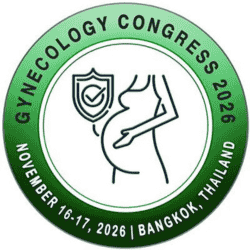Track: PCOD and PCOS

Polycystic Ovary Syndrome (PCOS) and Polycystic Ovarian Disease (PCOD) have emerged as critical areas of focus in women’s health, given their prevalence and impact on fertility, metabolic health, and overall well-being. Advancements in understanding the pathophysiology of PCOS have led to improved diagnostic methods, including more precise hormonal and ultrasound assessments. Treatment approaches have expanded to include not only traditional pharmacological treatments like metformin and hormonal contraceptives but also lifestyle interventions, such as weight management and personalized nutrition. Research into the genetic and environmental factors that contribute to PCOS is also opening new doors for more tailored therapies and long-term management strategies for women affected by these conditions.
Etiology and Pathophysiology of PCOD and PCOS:
Understanding the underlying causes and mechanisms of PCOD and PCOS is crucial for better management and treatment. This sub-track will focus on the hormonal imbalances, genetic factors, and environmental triggers contributing to these conditions, alongside their metabolic and reproductive implications.
Diagnosis and Early Detection Strategies:
Timely and accurate diagnosis of PCOD and PCOS can significantly impact patient outcomes. This segment will explore the latest diagnostic criteria, imaging techniques, and biomarker discoveries, as well as the importance of differentiating between PCOD and PCOS for targeted interventions.
Lifestyle Interventions and Holistic Management:
Lifestyle modifications play a pivotal role in managing PCOD and PCOS. This sub-track will discuss dietary approaches, exercise regimens, stress management, and the role of integrative medicine in improving the quality of life for individuals affected by these conditions.
Pharmacological Treatments and Innovations:
Advances in pharmacological therapies for PCOD and PCOS are continually evolving. This sub-track will delve into current treatment protocols, emerging medications, and personalized medicine approaches tailored to address hormonal imbalances, insulin resistance, and fertility challenges.
PCOD and PCOS in Adolescents:
Adolescents face unique challenges when diagnosed with PCOD or PCOS. This sub-track will highlight the importance of early intervention, counseling, and education to empower young individuals in managing symptoms and preventing long-term complications.
Impact on Fertility and Reproductive Health:
PCOD and PCOS are leading causes of infertility among women. This sub-track will explore advancements in assisted reproductive technologies, ovulation induction therapies, and fertility preservation strategies to support individuals on their journey to parenthood.
Scientific Highlights
- Maternal-Fetal Medicine
- Reproductive Health and Infertility
- PCOD and PCOS
- Menopause and Menstrual Disorders
- Pediatric Gynecology and Adolescent Gynecology
- Gynecological Pathology
- Gynecological Oncology
- Urogynaecology
- Gynecological Surgeries
- Midwifery
- Prenatal Nutrition and Perinatal Health
- Miscarriage and Mental Health
- Obstetric Emergencies and Critical Care
- Advancements in Gynecology and Obstetrics
- Cosmetic Gynecology


